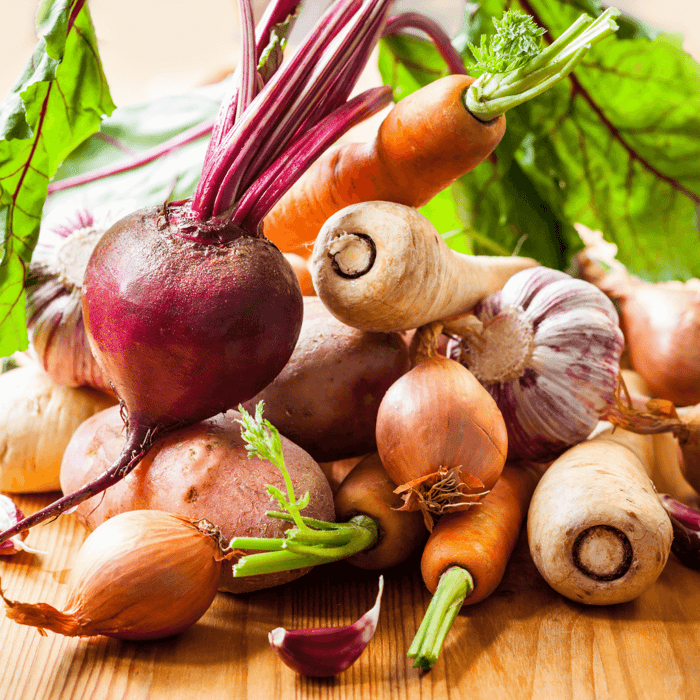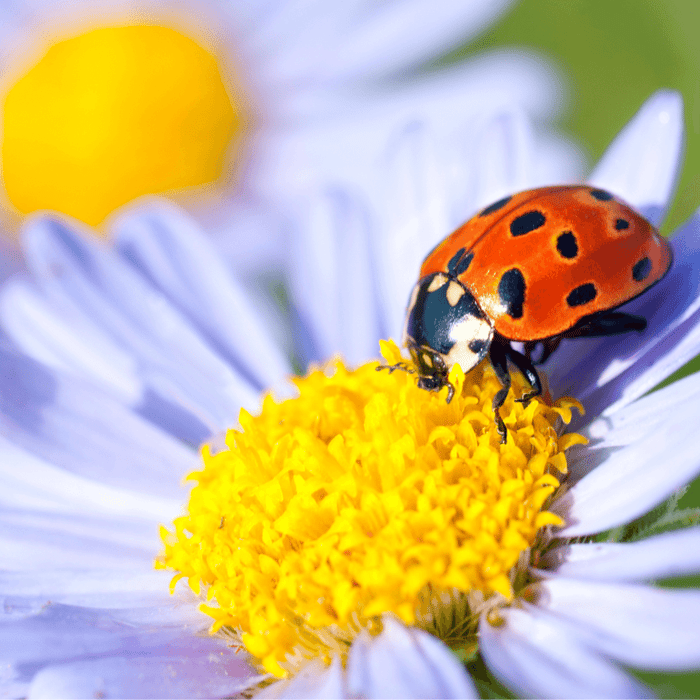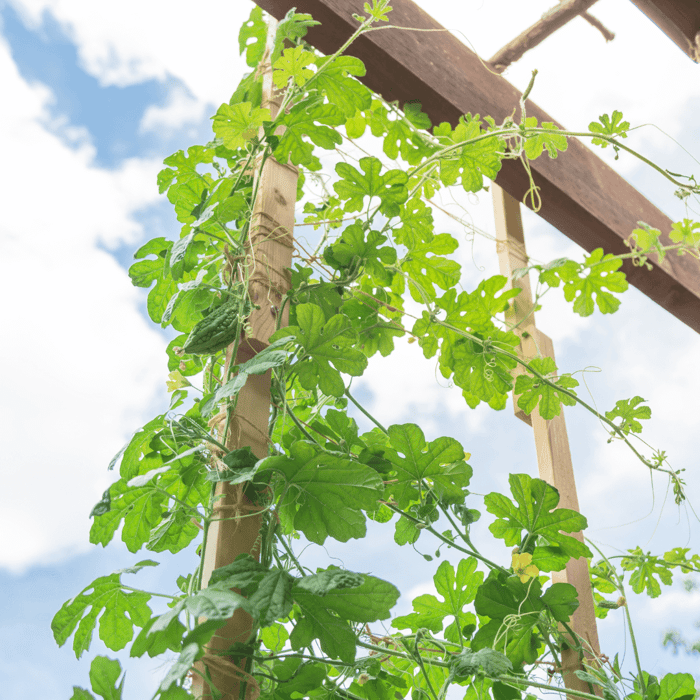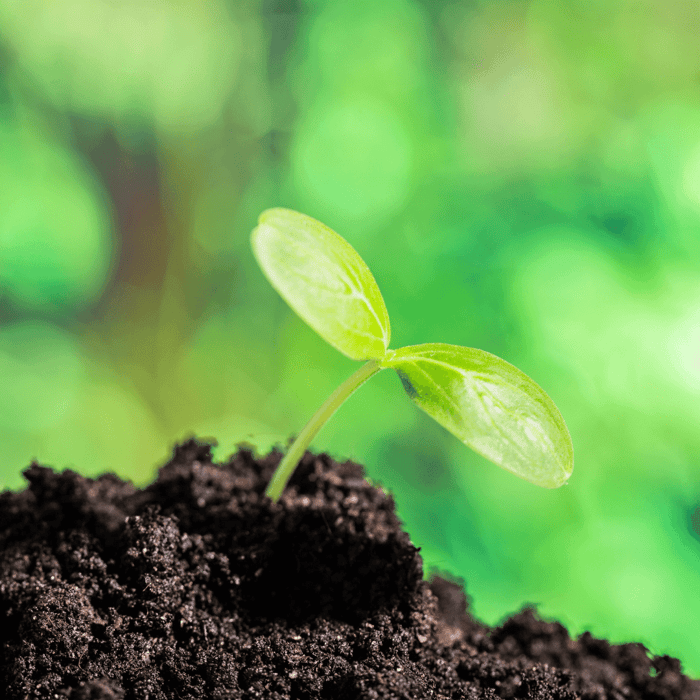Root vegetables are the underground treasures of your garden. Whether served as a hearty side dish or the star of your meal, they provide a variety of flavors, textures, and nutrients that make them indispensable in any vegetable garden. But what is a root vegetable exactly? They are some of my favorite vegetables, so let's jump in.
What Are Root Vegetables?
Root vegetables, as their name implies, are plant parts that grow underground. These vegetables are the storage organs of the plant, where nutrients and energy are stored for later use. The category of root vegetables includes tuberous roots like sweet potatoes, taproots like carrots and beets, and tubers like the Jerusalem artichoke.
The Benefits of Growing Root Vegetables
Growing root vegetables in your garden offer numerous benefits:
- Efficient Use of Space: As they grow underground, they utilize space that would otherwise be wasted in a garden bed.
- Nutrient-Rich: Root vegetables absorb nutrients from the soil, making them a nutrient-dense food source high in antioxidants.
- Long Storage Life: Many root vegetables can be stored for months in root cellars or other cool, dark locations, providing a long-lasting harvest.
- Versatility in Cooking: Root vegetables can serve as a main dish, side dish, or dessert ingredient, providing plenty of culinary options.
Vegetable Seed Vault Kit | 35 Variety Pack

$29.95
$49.95
Ultimate Survival Seed Vault: 16,000+ Non-GMO Heirloom Vegetable Seeds for Emergency Preparedness Introducing the Seed Vault Kit, your all-in-one solution for emergency preparedness and sustainable gardening. This premium seed kit contains over 16,000 non-GMO, Heirloom, Non-Hybrid, and Open Pollinated seeds,… read more
Spotlight on Specific Root Vegetables
Each root vegetable brings unique qualities to your garden and your plate. Here are some popular root vegetables, unique attributes, and tips for growing them in your garden.
Carrots
With their sweet flavor and crunchy texture, Carrots are a well-loved root vegetable worldwide. Growing carrots requires loose and deep soil to accommodate the long, tapering roots. Shorter, rounder carrot varieties are available for gardeners with heavier or rocky soil. Carrot seeds are tiny and can be tricky to sow evenly. They take about two weeks to germinate, and keeping the soil moist during this time is important.
Carrot Seeds For Planting | 5 Variety Pack

$9.95
Grow Your Own Carrots: 5 Carrot Seeds Variety Pack – Heirloom, Non-GMO, Open-Pollinated Introducing our 5 Carrot Seeds Variety Pack – a premium collection of heirloom carrot seeds designed for gardeners who want to grow fresh, vibrant, nutrient-packed carrots right… read more
Beets
Beets are known for their deep red color and distinct earthy flavor. Beets prefer cool weather and can be planted in both spring and fall. Beet seeds are clusters of multiple seeds, so each can produce more than one plant. This means you'll likely need to thin your beet seedlings to ensure each plant has enough space to grow. Growing beets is fun because you can grow many fun beet varieties you cannot purchase in the grocery store.
Beet Seeds For Planting | 5 Variety Pack

$9.95
The Ultimate Beet Seed Pack - 5 Heirloom, Non-GMO Beet Varieties Introducing our premium 5 Beet Seeds Variety Pack, a must-have for any gardener looking to grow a diverse and colorful beet harvest! These heirloom beet seeds are carefully curated… read more
Radishes
Radishes are quick-growing root vegetables, with some varieties ready for harvest in as few as three weeks. Radish seeds are larger and easier to handle than other root vegetable seeds. They germinate quickly, often sprouting within a few days of planting. Growing radishes is my favorite; they are great for survival gardens because they germinate and proliferate.
Radish Seed Assortment | 5 Variety Pack

$9.95
5 Radish Seeds Variety Pack – Heirloom, Non-GMO, Open-Pollinated, Non-Hybrid Bring diversity, flavor, and color to your garden with our 5 Radish Seeds Variety Pack. This exclusive assortment includes five unique radish varieties that are perfect for every season and… read more
Sweet Potatoes
Sweet potatoes, despite their name, aren't related to regular potatoes. These tuberous roots are high in fiber, vitamins, and antioxidants, particularly beta-carotene. Sweet potatoes require a long, warm growing season, which makes them best suited for southern climates.
Jerusalem Artichokes
Jerusalem artichokes, or sunchokes, are a less common root vegetable that deserves a place in more gardens. They produce tall, sunflower-like plants and knobby, tuberous roots with a sweet, nutty flavor. Jerusalem artichokes are vigorous growers and can become invasive if not managed properly.
Celery Root
Celery root, or celeriac, is a unique root vegetable often overlooked. It is related to celery but is grown for its large, bulbous root rather than stalks. Celery root has a complex, savory flavor that is excellent in soups and stews or roasted as a side dish. It requires a long growing season and prefers cool weather.
Additional Root Vegetables Worth Exploring
While the above are some of the more popular root vegetables, many more options bring unique flavors, textures, and nutritional benefits to your garden and your table.
Turnips
Turnips are versatile root vegetables often overshadowed by their more popular counterparts. They are fairly easy to grow in cool weather and mature quickly, usually within two months of planting. The roots are widely used in cooking, while the greens are a nutritious addition to salads and stir-fries. Turnip seeds are small and should be sown directly into the garden in early spring or late summer for a fall harvest. Growing turnips is great because you can plant them for multiple growing times during the year.
Parsnips
Parsnips are a cold-weather vegetable known for their sweet flavor, especially after the first frost, which helps convert their starches into sugars. They require a long growing season and deep, well-prepared soil. Parsnip seeds are small and have a short viability period, so getting fresh seeds each year is important. Parsnips can be sown in early spring, as soon as the soil can be worked.
Rutabagas
Rutabagas, sometimes called Swedish turnips, are larger and sweeter than turnips. They are frost-tolerant and can be harvested in late fall or early winter. Rutabagas have a longer growing season than turnips, so plan accordingly. Rutabaga seeds can be directly sown into the garden about three months before the first expected fall frost.
Daikon
Daikon is a type of radish that is widely used in Asian cuisine. It's known for its large size and mild flavor. Daikons prefer cool weather and should be planted for a fall harvest in late summer. Daikon seeds are similar to radish seeds but can be slightly larger. They can be directly sown into the garden.
Ginger
Ginger is a tropical root vegetable known for its fragrant aroma and spicy flavor. It's usually grown from rhizomes (a type of stem that grows underground) rather than seeds. However, it can be grown indoors in pots if you're in a cooler climate. Start with fresh ginger from the grocery store, select a piece with well-developed "eyes" or growth buds, and plant it in a pot with the eyes facing up.
Turmeric
Like ginger, turmeric is a tropical root vegetable. It's recognized for its bright yellow color and is widely used as a spice in cooking. Turmeric is also grown from rhizomes rather than seeds. To grow turmeric, start with a fresh turmeric rhizome, and plant it in a large pot with the buds facing up.
Yams
True yams are tropical root vegetables, distinct from sweet potatoes, although the terms are often used interchangeably in the United States. Yams are typically grown from small portions of the tuber rather than seeds. Select a healthy, mature yam for growing yams and cut it into sections, each with a few eyes. These can be planted in deep, loose soil.
Onions
Onions are a staple in many kitchens, valued for their flavor and versatility. While we often think of onions as a bulb rather than a root vegetables, they grow underground and can be included in this category. Onion seeds can be started indoors in late winter or directly sown into the garden in early spring. Onions can also be grown from sets, which are small, immature bulbs.
Onion Seed Assortment | 8 Variety Pack

$15.95
Complete Onion Seeds Collection: 8 Non-Hybrid, Heirloom, Non-GMO Seed Varieties Introducing our 8 Onion Seeds Variety Pack – the perfect collection for home gardeners, chefs, and onion enthusiasts looking to grow a diverse range of flavorful onions! Each variety in… read more
Water Chestnut: An Aquatic Root Vegetable
While most root vegetables are grown in the soil, the water chestnut is a unique variety that grows underwater. It is a staple in Asian cuisine, known for its crisp texture and sweet, nutty flavor. Although water chestnuts are tropical plants, they can be grown in outdoor ponds or large containers during the summer months in cooler climates.
How to Store Root Vegetables: The Role of Root Cellars
Root cellars have been used centuries to store root vegetables and other produce. These cool, dark, and humid spaces mimic the underground conditions where root vegetables naturally thrive, helping to preserve them for months after the harvest. Storing root vegetables in a root cellar allows you to enjoy your garden's bounty long after the growing season. While modern refrigeration has largely replaced the need for root cellars, many gardeners still appreciate their traditional use, especially for large harvests.
In Conclusion: What is a Root Vegetable
Root vegetables are a diverse and rewarding group of plants to grow in your garden. They absorb nutrients from the soil, enriching them with vitamins, minerals, and antioxidants. From the sweet crunch of a carrot to the earthy depth of a beet, they offer a wealth of flavors and textures for your culinary creations. Whether you're a seasoned gardener or just starting, growing root vegetables is a rewarding endeavor that yields delicious results.
Root Vegetables: An Essential Part of a Balanced Diet
Though not the focus of our guide, it's worth noting the dietary importance of root vegetables. Many are considered starchy root vegetables, providing a healthy alternative to traditional carbohydrates like rice or pasta. They help regulate blood sugar, thanks to their complex carbohydrates and high fiber content. Root vegetables are also rich in vitamins, minerals, and antioxidants, which are essential for overall health.
Seed Safe Survival Seed Kit - 35 Variety Pack

$29.95
$49.95
Seed Safe Survival Seed Kit: The Ultimate Heirloom Collection for Self-Sufficient Gardening Introducing the Seed Safe - 35 Varieties of Heirloom Vegetable, Herb, and Fruit Seeds, the ultimate solution for gardeners who want to secure a bountiful future harvest. This… read more
Experimenting with Heirloom Varieties
Don't be afraid to experiment with heirloom varieties of root vegetables in your garden. Heirloom garden seeds are varieties passed down through generations due to their valued characteristics. These may include flavor, color, texture, or adaptability to specific growing conditions. Planting heirloom seeds not only helps preserve agricultural biodiversity but can also introduce you to new flavors and textures often absent from common supermarket varieties.
The Joys and Challenges of Gardening Root Vegetables
Growing root vegetables is not without its challenges. As they grow underground, knowing exactly when they're ready to harvest can be hard. There's a certain element of surprise in pulling up a root vegetable, revealing what's been growing beneath the soil's surface. But it's precisely this sense of mystery and discovery that makes growing root vegetables so enjoyable.
Final Thoughts: Root Vegetables in Your Garden
Root vegetables are a worthy addition to any garden. They're versatile, nutrient-dense, and remarkably resilient, making them a fantastic choice for novice and experienced gardeners. Root vegetables bring diversity to your garden and your plate with their various colors, textures, and flavors. So, why not give them a try? Start planning your vegetable garden today, and explore the wonderful world of root vegetables.
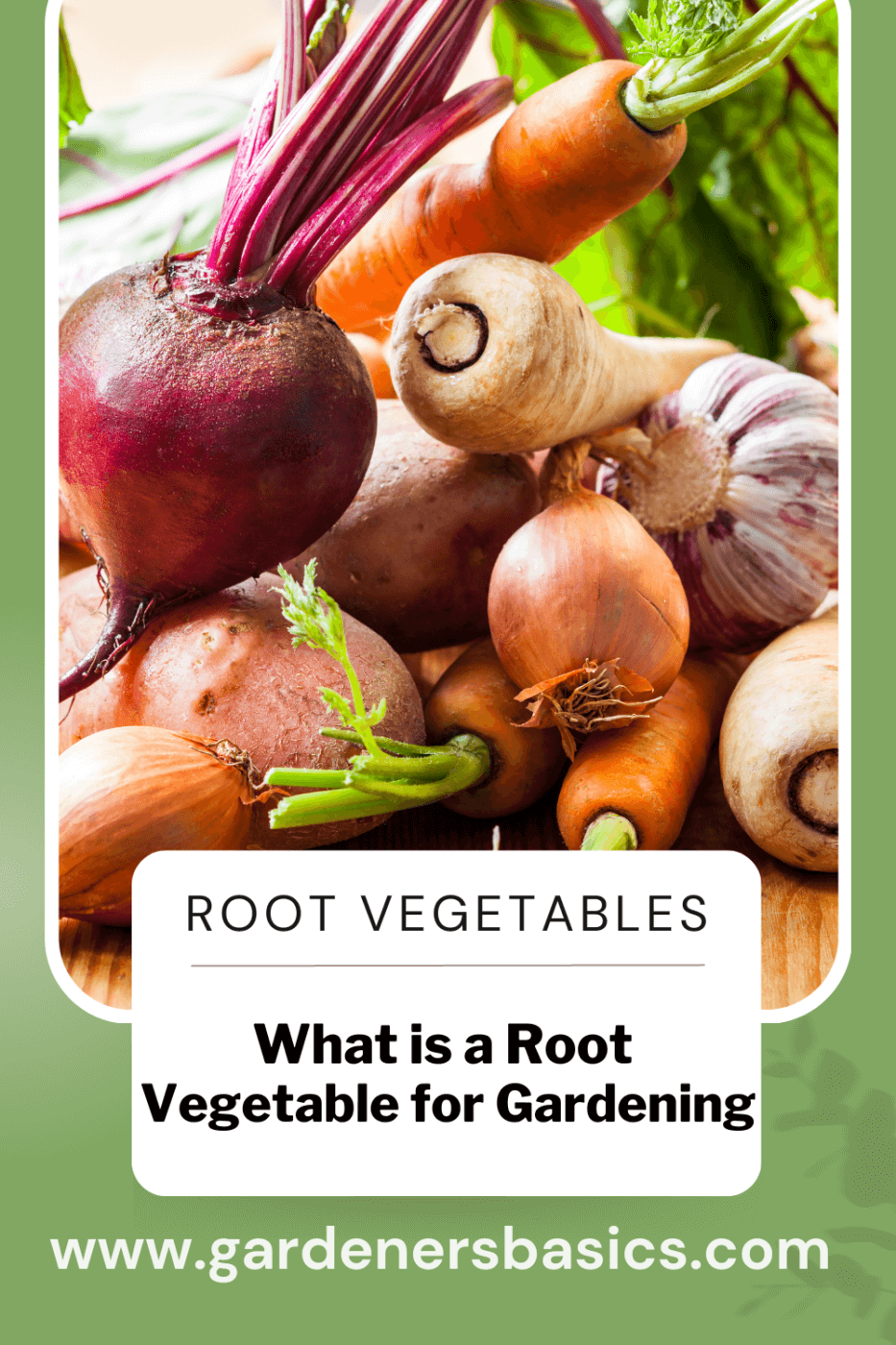 FAQs What is a Root Vegetable
FAQs What is a Root Vegetable
Q: Are root vegetables hard to grow?
A: Many root vegetables are pretty easy to grow, but they have certain requirements, such as loose soil and proper spacing, to develop properly. Some, like radishes, are beginner-friendly, while others, like carrots, can be more challenging in certain conditions.Q: How do I store root vegetables?
A: Most root vegetables store well in cool, dark, humid conditions. A root cellar is ideal, but a basement, garage, or refrigerator can work. Some root vegetables, like potatoes and onions, should be cured before storage to toughen their skin and extend their storage life.
Q: Can root vegetables be grown in containers?
A: Many root vegetables can be successfully grown in containers, provided the container is deep enough for the roots to develop and has adequate drainage. Carrots, radishes, and beets are all good choices for container gardening.
Q: Are root vegetables healthy?
A: Absolutely! Root vegetables are rich in fiber, vitamins, and minerals. They're also high in antioxidants and beneficial plant compounds.
Q: Can I plant root vegetable seeds directly in the garden, or do they need to be started indoors?
A: Most root vegetables prefer to be sown directly into the garden, as they don't transplant well. However, some, like onions, can be started from seeds indoors, or you can plant onion sets directly into the garden.
Q: How do I know when my root vegetables are ready to harvest?
A: Harvest times for root vegetables vary greatly depending on the specific vegetable and variety. In general, root vegetables are ready to harvest when they have reached their mature size. Check seed packet information for specific harvest times, and remember that many root vegetables can be harvested at a smaller size for a tender and sweet flavor.
Root vegetables are an essential part of any vegetable garden. They provide a bounty of nutritious, delicious food, and their unique growing habits make them a fascinating addition to your gardening experience. Happy gardening!



